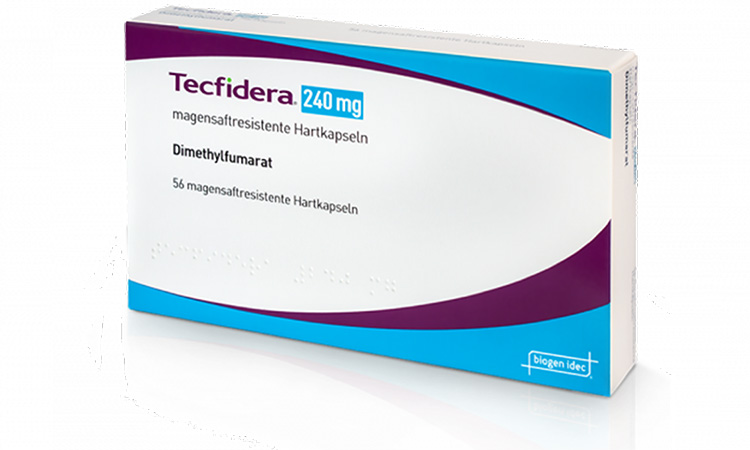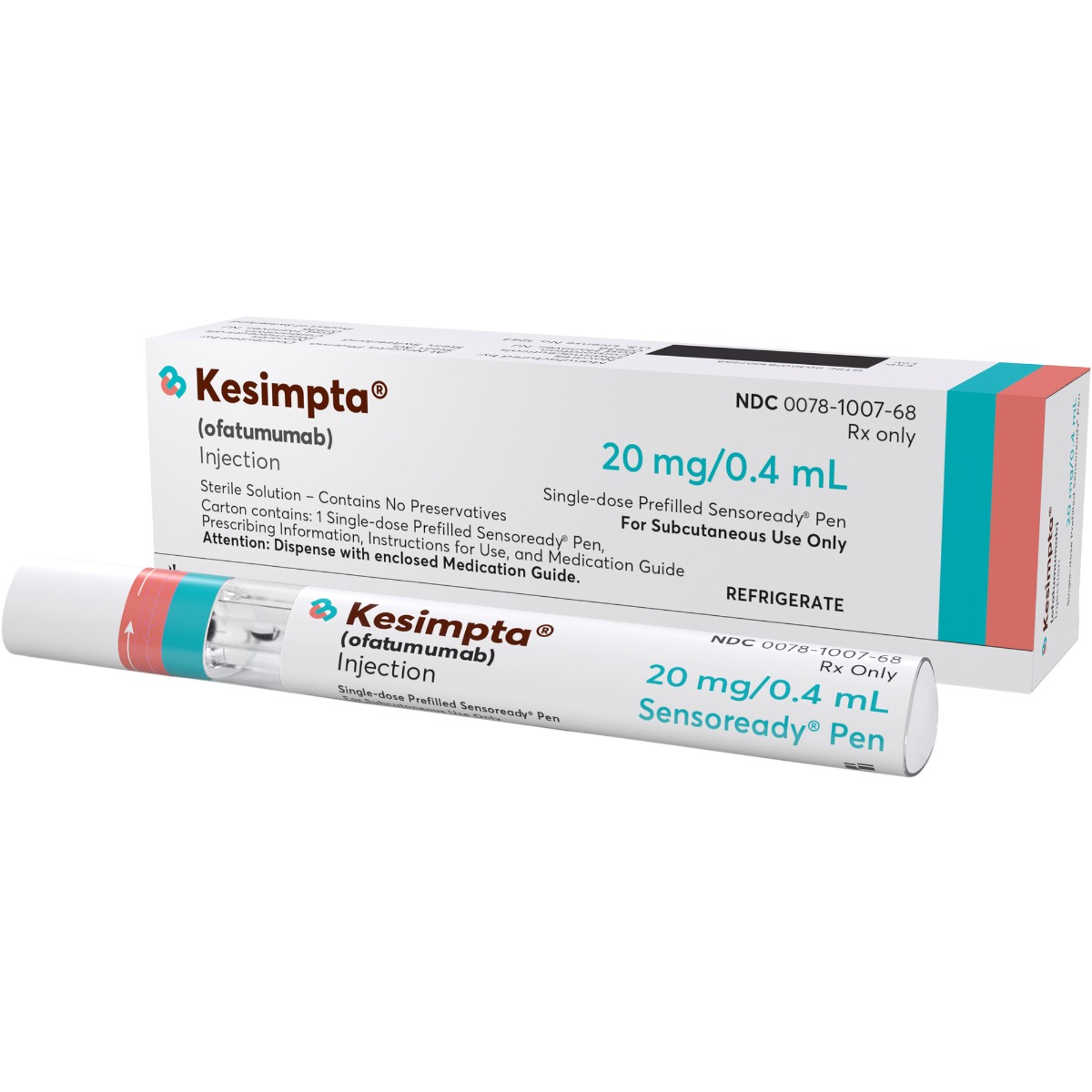Tecfidera (dimethyl fumarate) vs Kesimpta (ofatumumab)
Tecfidera (dimethyl fumarate) vs Kesimpta (ofatumumab)
Tecfidera (dimethyl fumarate) is an oral medication used in the treatment of relapsing forms of multiple sclerosis (MS), which works by activating the Nrf2 pathway, thought to provide a protective effect on the nervous system. Kesimpta (ofatumumab) is a subcutaneous injectable monoclonal antibody targeting CD20, a protein on the surface of B cells, and is also used for relapsing MS, aiming to reduce the number of B cells that can contribute to the disease's progression. When deciding between the two, patients should consider factors such as the route of administration, the side effect profile, and the mechanism of action, as well as discuss with their healthcare provider which medication aligns best with their lifestyle, medical history, and treatment goals.
Difference between Tecfidera and Kesimpta
| Metric | Tecfidera (dimethyl fumarate) | Kesimpta (ofatumumab) |
|---|---|---|
| Generic name | Dimethyl fumarate | Ofatumumab |
| Indications | Multiple sclerosis | Relapsing forms of multiple sclerosis |
| Mechanism of action | Activates the Nrf2 pathway | CD20-directed cytolytic antibody |
| Brand names | Tecfidera | Kesimpta |
| Administrative route | Oral | Subcutaneous injection |
| Side effects | Flushing, gastrointestinal issues, PML | Injection site reactions, upper respiratory tract infections, headache |
| Contraindications | Known hypersensitivity to dimethyl fumarate or any of the excipients | Active hepatitis B infection, hypersensitivity to ofatumumab or its excipients |
| Drug class | Fumaric acid ester | Monoclonal antibody |
| Manufacturer | Biogen | Novartis |
Efficacy
Efficacy of Tecfidera (Dimethyl Fumarate) in Treating Multiple Sclerosis
Tecfidera (dimethyl fumarate) is an oral medication approved by the U.S. Food and Drug Administration (FDA) for the treatment of relapsing forms of multiple sclerosis (MS), which include clinically isolated syndrome, relapsing-remitting disease, and active secondary progressive disease. The efficacy of Tecfidera in treating MS has been demonstrated in clinical trials, such as the DEFINE and CONFIRM studies. These studies showed that Tecfidera significantly reduced the relapse rate in patients with relapsing-remitting MS compared to placebo. Additionally, Tecfidera was associated with a reduction in the number of new or enlarging brain lesions as seen on MRI scans, which is an important marker of disease activity in MS.
Furthermore, an extension of the DEFINE and CONFIRM trials indicated that the long-term use of Tecfidera continued to provide benefits in terms of reducing relapse rates and slowing the progression of disability. However, it is important to note that the response to Tecfidera can vary among individuals, and some patients may experience a different level of efficacy. The drug's mechanism of action is thought to involve the modulation of the immune response and the protection of the central nervous system from damage caused by inflammation and oxidative stress.
Efficacy of Kesimpta (Ofatumumab) in Treating Multiple Sclerosis
Kesimpta (ofatumumab) is a monoclonal antibody that is self-administered via subcutaneous injection and is approved by the FDA for the treatment of relapsing forms of multiple sclerosis, including clinically isolated syndrome, relapsing-remitting disease, and active secondary progressive disease. The efficacy of Kesimpta in treating MS was established through the ASCLEPIOS I and II phase III clinical trials. These trials demonstrated that Kesimpta significantly reduced the annualized relapse rate in patients with relapsing forms of MS compared to teriflunomide, another MS medication. Kesimpta also showed superiority in reducing the number of brain lesions and slowing down the progression of disability.
Kesimpta works by targeting CD20-positive B cells, which are a key component in the pathophysiology of MS. By depleting these cells, Kesimpta helps to modulate the immune response and reduce the inflammatory activity within the central nervous system that contributes to the development and progression of MS. The medication has been praised for its convenient dosing schedule, which may improve adherence and patient satisfaction. As with any medication, individual responses to Kesimpta can vary, and it may not be the most effective or appropriate treatment for every patient with MS.
Regulatory Agency Approvals
Tecfidera
-
European Medical Agency (EMA), European Union

-
Food and Drug Administration (FDA), USA

-
Health Canada

-
Therapeutic Goods Administration (TGA), Australia

-
Medsafe (NZ)

Kesimpta
-
European Medical Agency (EMA), European Union

-
Food and Drug Administration (FDA), USA

Access Tecfidera or Kesimpta today
If Tecfidera or Kesimpta are not approved or available in your country (e.g. due to supply issues), you can access them via Everyone.org.
How it works

Make an enquiry
Choose the medicine you want to buy, answer a couple of questions, and upload your prescription to speed things up. We’ll get back to you within 24 hours.


Make an enquiry
Choose the medicine you want to buy, answer a couple of questions, and upload your prescription to speed things up. We’ll get back to you within 24 hours.


Breeze through the paperwork
We'll guide you through the required documents for importing unapproved medicine, ensuring you have all the necessary information.


Get a personalized quote
We’ll prepare a quote for you, including medicine costs and any shipping, administrative, or import fees that may apply.


Receive your medicine
Accept the quote and we’ll handle the rest - sourcing and safely delivering your medicine.

Some text on this page has been automatically generated. Speak to your physician before you start a new treatment or medication.
Let's talk
If you have any questions, call us or send us a message through WhatsApp or email:
Contact us




